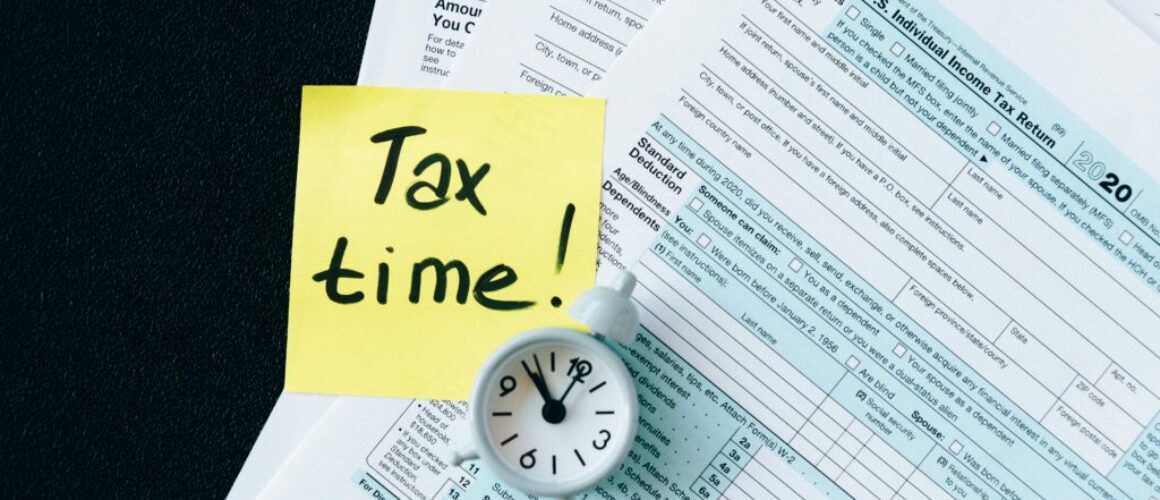Top 5 Tax Mistakes Small Business Owners Make (And How to Avoid Them)
Top 5 Tax Mistakes Small Business Owners Make (And How to Avoid Them)
Learn how to stay compliant, minimize risk, and avoid unnecessary penalties
Running a small business is a big achievement—but tax season can quickly turn stressful if you don’t stay ahead of the rules. At iFiler, we’ve helped hundreds of small business owners navigate their tax requirements, and we’ve seen where many people trip up.
To help you stay compliant and avoid penalties, here are the top 5 tax mistakes small business owners make—and how to prevent them.
🚫 1. Not Keeping Accurate (or Any) Financial Records
The Mistake:
Many small business owners either fail to track their expenses and income properly or rely solely on their bank statements. This creates major problems during tax filing—especially when claiming deductions or proving income.
Why It Matters:
-
Poor recordkeeping increases audit risk.
-
You may miss deductions and overpay taxes.
-
If audited, you need proof for every claim.
How to Avoid It:
-
Use accounting software (like QuickBooks, Xero, or Wave).
-
Keep all receipts, invoices, and payroll records.
-
Reconcile your books monthly.
-
Open a dedicated business bank account and don’t mix personal finances.
⚠️ 2. Missing Federal or State Filing Deadlines
The Mistake:
Each business entity has its own tax filing deadlines. Missing even one can result in penalties ranging from hundreds to thousands of dollars.
Why It Matters:
-
Late filing of Form 5472 (for foreign-owned LLCs) comes with a $25,000 penalty.
-
Failing to file partnership returns (Form 1065) can lead to $210 per partner, per month in fines.
How to Avoid It:
-
Know your deadlines (e.g., March 15 for partnerships/S-Corps, April 15 for most others).
-
Set calendar reminders or subscribe to iFiler’s deadline alerts.
-
File an extension if needed, but don’t miss the original due date.
🤷 3. Choosing the Wrong Tax Structure for Your LLC or Business
The Mistake:
Some business owners choose a structure (like C-Corp, S-Corp, or partnership) without understanding how it impacts taxes. Others forget to file necessary IRS elections (like Form 2553 for S-Corp status).
Why It Matters:
-
The wrong structure can lead to double taxation or overpayment.
-
You might not qualify for certain deductions (like the 20% QBI deduction).
-
Missed elections can’t always be corrected.
How to Avoid It:
-
Understand the differences between sole proprietorship, partnership, C-Corp, and S-Corp.
-
Consult with a tax expert before filing your entity.
-
iFiler helps you select the optimal tax status for your situation—and submits the correct IRS forms on time.
💸 4. Overlooking Deductible Expenses (Or Claiming the Wrong Ones)
The Mistake:
Some business owners are too cautious and miss out on valid deductions. Others try to write off personal expenses as business costs, which raises red flags.
Why It Matters:
-
You could be paying more tax than necessary.
-
Incorrect deductions can trigger audits or penalties.
How to Avoid It:
-
Know what qualifies: business travel, office rent, software, internet, advertising, professional services, etc.
-
Keep a detailed log of mileage, if applicable.
-
Never mix personal and business expenses.
-
Use iFiler or a qualified accountant to review deductions before filing.
🧾 5. Forgetting to File or Pay Estimated Quarterly Taxes
The Mistake:
LLCs, freelancers, and corporations with no tax withholding often forget to make quarterly estimated payments throughout the year.
Why It Matters:
-
You may owe the IRS a penalty for underpayment.
-
Paying a lump sum in April can cause cash flow issues.
How to Avoid It:
-
If you expect to owe $1,000+ in taxes, pay quarterly.
-
Estimated tax due dates: April 15, June 15, Sept 15, Jan 15
-
Use IRS Form 1040-ES to calculate and pay.
-
iFiler clients get reminders and calculation tools to stay on track.
✅ Bonus Tip: File Even If You Didn’t Earn Income
Many business owners wrongly assume that if their business didn’t earn anything, they don’t need to file. That’s false—and skipping required filings can cost you.
For example:
-
A single-member LLC owned by a non-resident must still file Form 5472 + pro forma 1120 annually.
-
Partnerships and S-Corps must file even with zero activity.
🧠 Stay Smart, Stay Compliant—with iFiler
iFiler helps small businesses:
-
File accurate federal & state tax returns
-
Avoid IRS penalties and audit triggers
-
Stay compliant year-round with filing reminders
-
Get expert help with EINs, ITINs, 5472s, and more
Whether you’re a new founder or growing entrepreneur, we take the stress out of taxes—so you can focus on running your business.
💬 Need Help With Filing?
We’re here for U.S. and international clients.
📩 Visit iFiler.us or message us directly to get your taxes filed correctly—fast.




